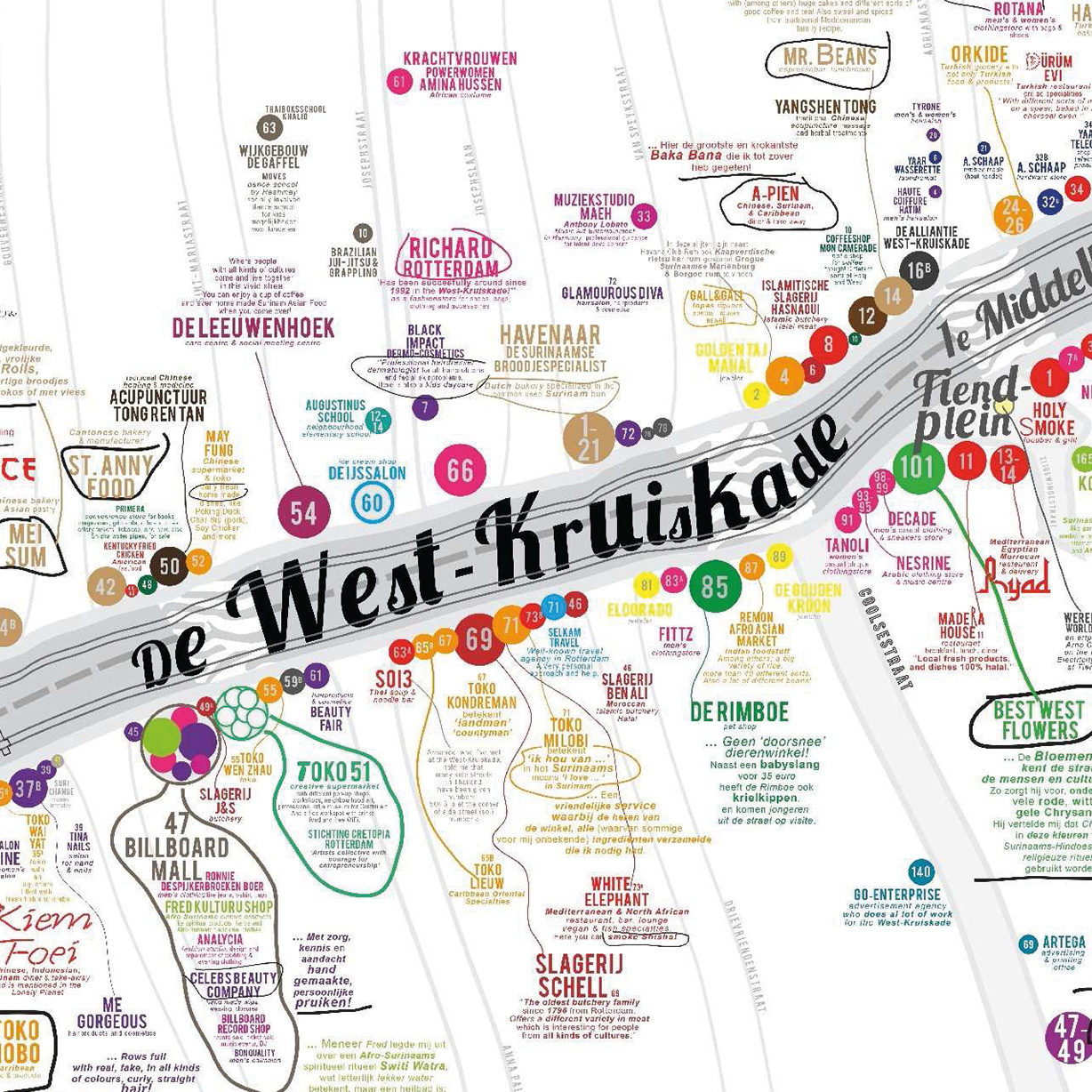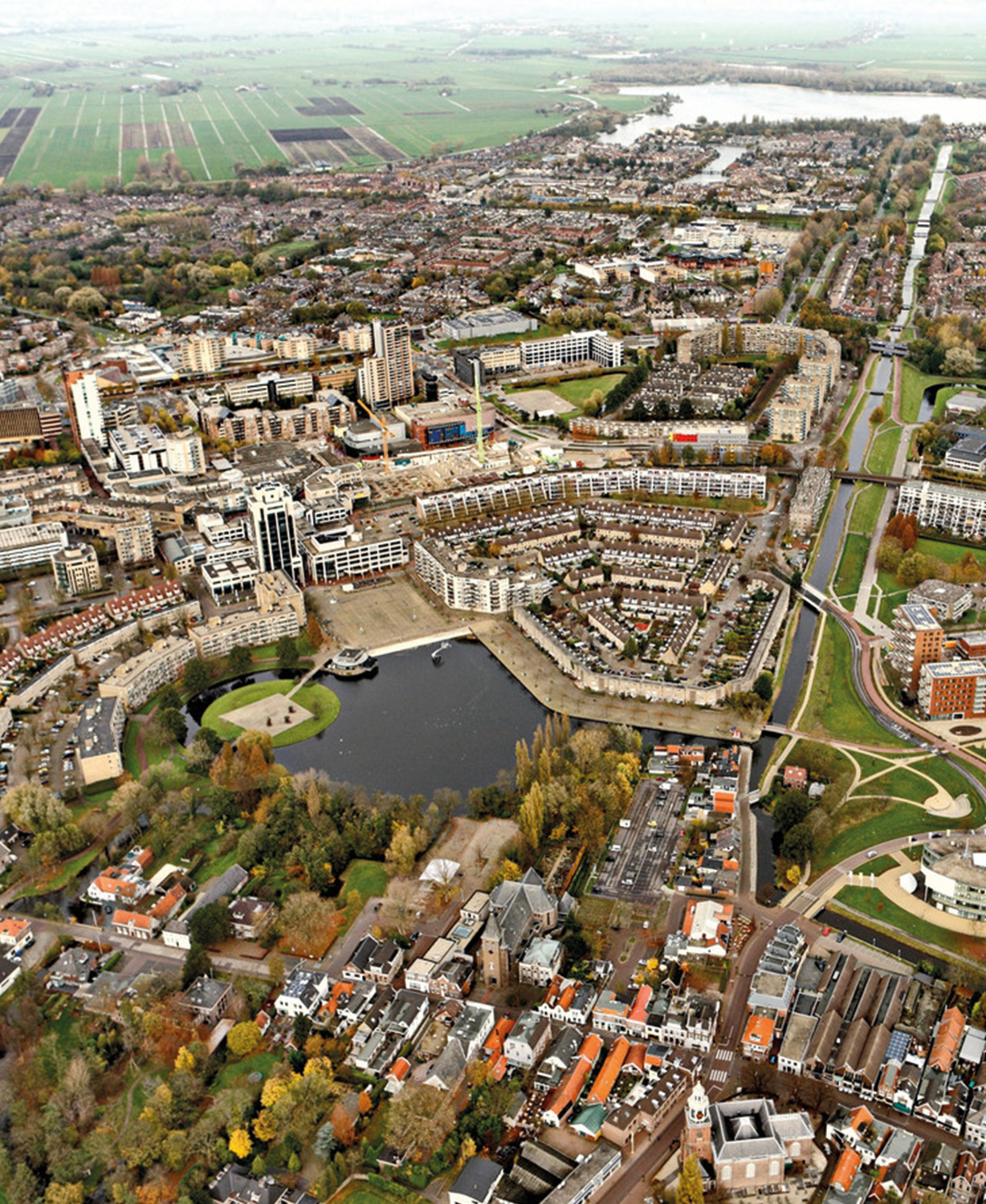Urban redevelopment is a complex process with many stakeholders involved. It can only be successful through a comprehensive approach. Urban regeneration and placemaking must be combined with economic development, education, social inclusion, and environmental protection (including biodiversity). Its success relies on strong partnerships between local citizens, civil society, industry, and various levels of government. RITTERWALD has built an extensive track record in the Netherlands.
Successfully restoring the physical and social fabric of local communities does not happen overnight. On the contrary it will cost you some sleepless night. It takes energy and dedication. Take it step by step, do not rush but keep the momentum going.
There is no Dutch (or British) approach in urban regeneration. The only approach is comprehensive and inclusive: engage all stakeholders (also -expected- opponents), balance physical, economic and social-cultural aspects, think of maximising the mixed-use potential, and celebrate small successes regularly.
Engage only dedicated professionals and volunteers. Skill sets can be learnt, commitment is required from the start to the end. Being street wise will help. Community leadership should be empowered to inform the supply chain (planners, designers, architects, social workers, retailers) to bring them to the next level. It is a team effort.
This last lesson may surprise, but it tells something about the facilitating role of government. We have never come across a well thought and implemented plan without a professional debate on the required budget. However, we have seen the opposite: funds allocated upfront without a good plan in place. In our experience that is a guarantee for failure.
As part of its service offer, in the Netherlands RITTERWALD has built a track record with sustainable urban development. We share two case studies, a high street regeneration in port city Rotterdam and the urban growth strategy and implementation plan in the former new town Zoetermeer. Both case studies provide lessons for other countries including the UK and its Levelling Up agenda. Selected high-level lessons that RITTERWALD applies in urban redevelopment client projects.
A no go high street with drug dealers and users on almost every street corner. Dilapidated properties. In bars and ‘specialist’ independent stores the main business model was selling drugs. Many storefronts did not invite customers to come in. Unique multi-generational family-owned stores (hardware, butcher, bakery, seafood) were struggling because their city-wide customers no longer wanted to visit them.
Improving safety and spurring local economic development. In other words, giving the street back to the local storeowners, visitors, and residents. To accomplish this goal, a 10-year implementation scheme was put in place prepared by local government (planning and police department), a major housing association, and the local business association. Implementation was managed by local alliance representing all stakeholders.

© Allientie West-Kruiskade
A must visit multi-cultural high street close to central station that thrives again due to economic revitalisation of commercial and residential properties and successful public private partnership. Today street management is primarily conducted by local business association through the area’s designation as a business improvement district. While it is a success, everyone must stay alert: a project like this will never be finished.
Securing public and private engagement in a binding agreement, support from retailers, strong dedicated leadership, decisiveness through direct access to enforcement leadership through city Marshall (intermediary between city and police responsible for the tipping point), act and move quickly form the start, and local intelligence on the ground.
Zoetermeer was developed as a new town that celebrated its 60th anniversary in 2022. It is now home to 127,000 people. Since 2017 RITTERWALD has supported its urban redevelopment strategy. For decades the city’s growth took place in the surrounding green fields. Therefore, capacity building did not fit the purpose of the ‘brownfield’ urban redevelopments challenge. Also, the city was reluctant to lead pro-active real estate stakeholder management.
RITTERWALD was asked to educate civil servants in urban redevelopment practices and prepare a 10,000 homes City Deal (Stadsbouwakkoord) with housing associations, private developers, and institutional investors. RITTERWALD hosted master classes for 200 civil servants, including city council members and commissioners, organised bi-monthly meetings for all civil servants with engaging high-level public and private sector motivational speakers. And finally activated stakeholder management through market consultations.

© Ardito / Jan-Evert Zondag
A City Deal to deliver 10,000 new homes on brownfield sites and the launch of a permanent public private professional network with over15 companies.
public leadership, long term commitment from real estate industry and external pressure to act and outperform the city benchmark.